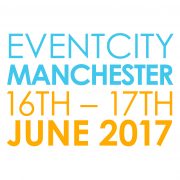Coming to know how to work with young children by Dr. Verity Campbell-Barr
18th May 2017
Share this entry:

When asked what do you need to know in order to work with young children there is a temptation to refer to theoretical knowledge, such as that relating to child development or pedagogical theories. ECEC is actually something of a theoretical hybrid, drawing on a range of different theoretical disciplines, such as developmental psychology, sociology and education (and increasingly economics and neuro-science) to shape and inform understandings of education, care, children and their development. Theoretical knowledge is persuasive, often presented in text books or formal reports, but it is not the only form of knowledge that informs those working in ECEC. Knowledge of curriculum requirements, health and safety requirements, inspection requirements and other such requirements will also inform how we work with children. There are aspects of both the theoretical knowledge and the ‘requirements’ based knowledge that we might find frustrating or constraining, resulting in a favouring of some forms of knowledge over others, but this is part of what contributes to the range of ways that people know-how to work with young children.
Importantly, the knowledge needed for working with young children also comes from the children – knowledge of their likes, their families, their sleep routines, the things that make them laugh etc. etc. Knowledge about children is just as important for working with young children as the theory and requirement based knowledge. At times, the knowledge about children is written down, such as an observation, but other times it is knowledge shared within teams or held by individuals. Knowledge about children has a different structure to that of theory. Theory has a history of development that has been documented, it is tested and it can be widely distributed, providing it with a more rigorous structure than knowledge about children. The structure of theoretical knowledge is what draws people to refer to it when asked ‘what do you need to know to work with young children’. However, I am keen to draw attention to how it is the combination of knowledges that is important when working in ECEC.
When working with children you draw on multiple forms of knowledge – theory, requirements and that which comes from children. Other forms of knowledge will also contribute, such as knowing about the daily routine of the ECEC centre where you work or knowledge that has been developed from years of experience of working in ECEC. In considering the knowledges that you possess for working with young children it is possible to appreciate what a rich and varied knowledge-base you have for working with young children.
So when you are next faced with a feeling of ‘what should I do’ in the melee of daily ECEC life, remember you know.
Dr. Verity Campbell-Barr, Associate Professor in Early Childhood Studies, Plymouth University
Click here to register for your free tickets to attend Childcare Expo Manchester on 16th & 17th June 2017.
Why attend Childcare Expo?
Join over 2,500 like-minded individuals from the early years sector who are dedicated to improving both practice and their childcare settings.
Attend educational seminars to credit your CPD
Meet the experts to have your questions answered
Receive fantastic onsite offers and discounts
Experience expert-led informative hands-on workshops
Network with peers and industry players
Pick up hundreds of new product ideas and services
And most of all, enjoy a great day out with your colleagues




